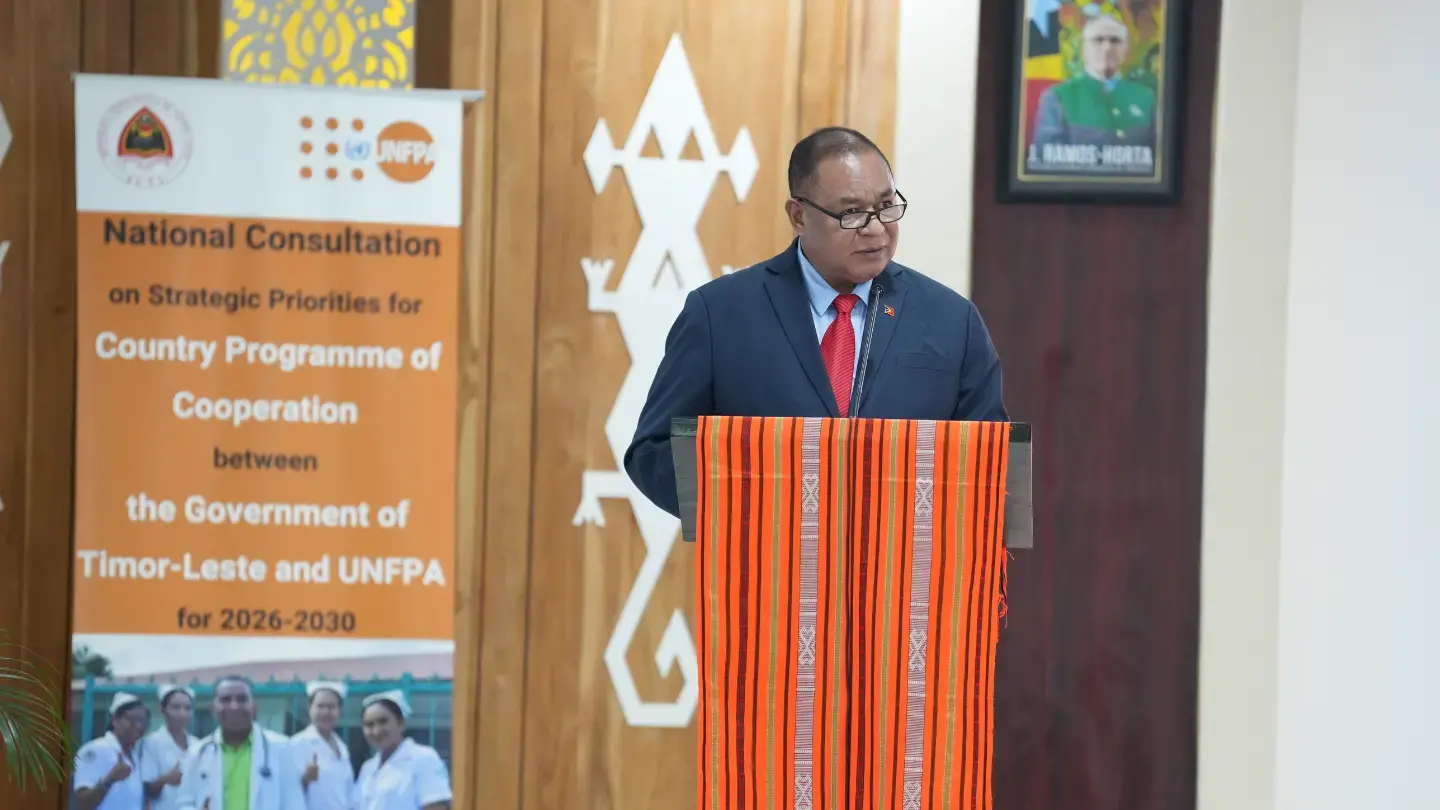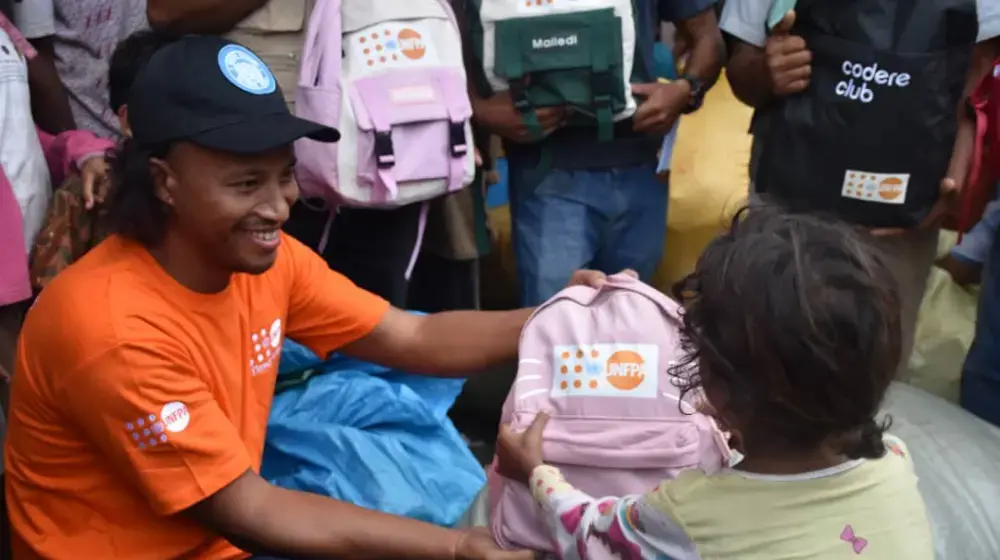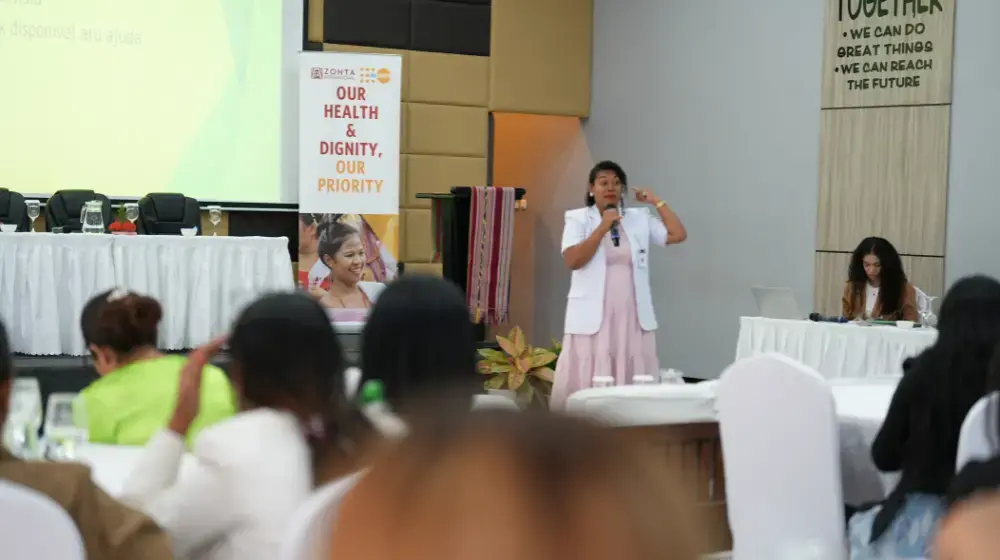Manufahi, Timor-Leste- Getting off the plane from Dili, the UNFPA team is surrounded by the lush tropical forest of Manufahi. For the next several days, the team will be meeting and consulting with Xefe Suco, suku Letefoho (the head of the Letefoho village), representative from local authorities and community mobilizers.

After greeting us with warm and hearty welcome, Xefe Suco tells us about his interest on UNFPA’s newly released research on teenage pregnancy and early marriage in Timor-Leste. “Although the research was not carried out in Manufahi, I found it very relevant,” he says. “Girls falling pregnant by accidents and the men are not responsible about the pregnancy; they have no shame in abandoning girls and child……I am very worried about the teenage pregnancy in my suku.”
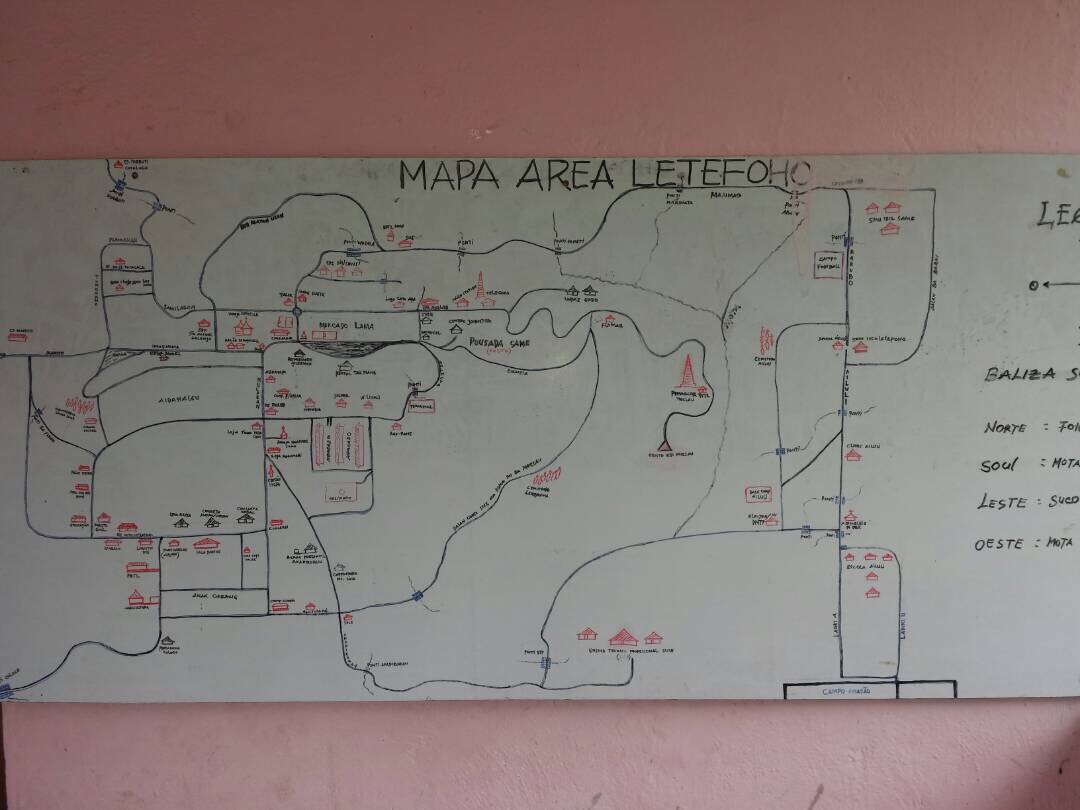
Teenage pregnancy and early marriage in Timor-Leste
Xefe Suco’s concern is right; it is also applicable across the country of Timor-Leste.
19% of young women (aged between 20-24) marry before 18 and 24% have a child by the time they turn 20. The issue is important as in the country; teenagers are twice as likely to die in child delivery as older women. Aiming to identify the root causes leading to teenage pregnancy and early marriage in the country, UNFPA, the Secretariat of State for Youth and Sports and Plan International conducted the research in 2017 at the request of the Female Parliamentarians of Timor-Leste Group (GMPTL). "It was very important for us to investigate and understand the social determinants of teenage pregnancy and early marriage", said Candie Cassabalian, UNFPA Youth Specialist "so we directly went to ask young women about their life stories. The results surprised us...."
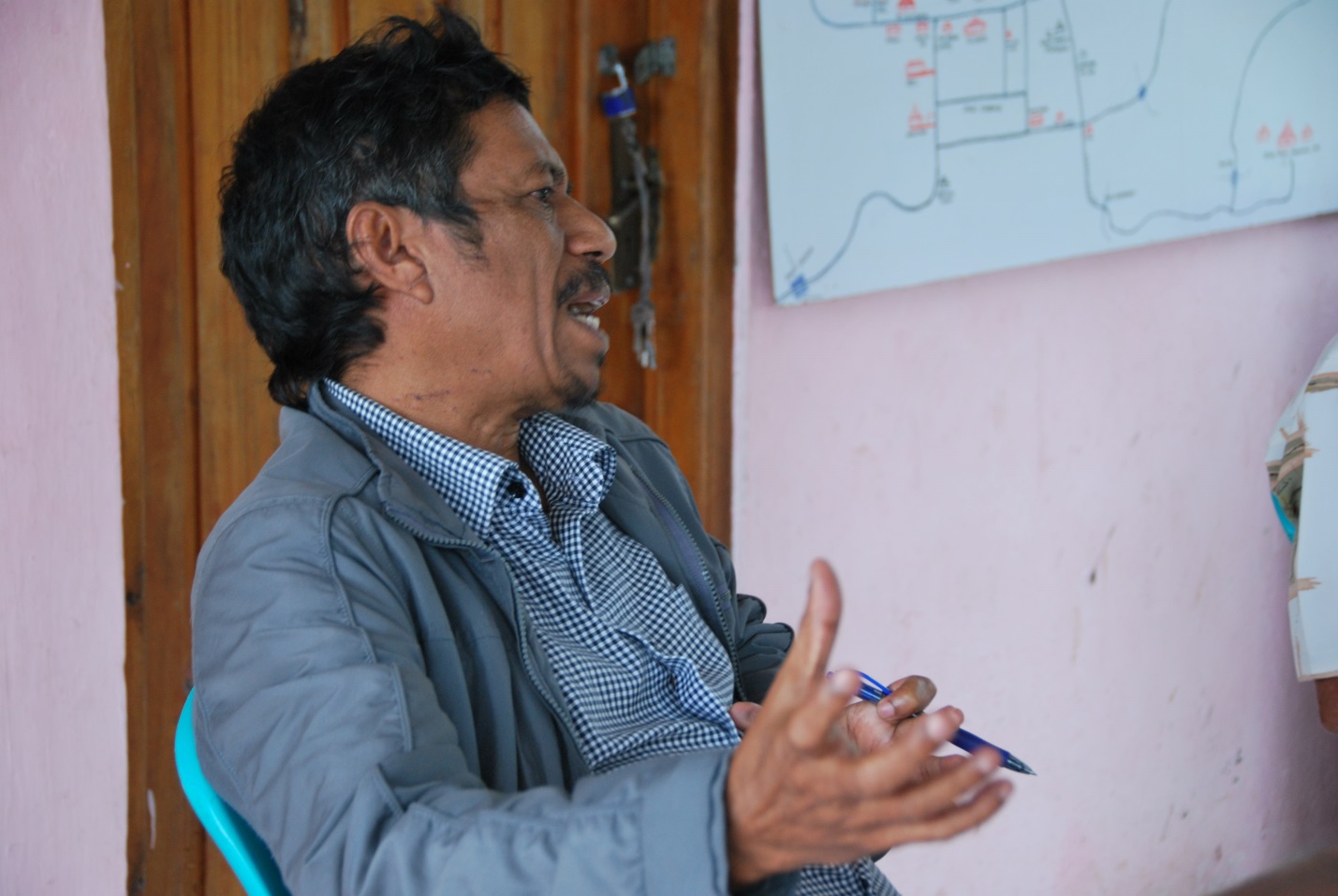
The research clearly revealed that teenage pregnancies and early marriage have consequences for many aspects of young people’s lives. It also identified the causes of early marriages are young people’s lack of knowledge in reproductive health, their lack of access to contraception and lack of agency in helping young women in sexual decision-making. “Adults talk a lot about protecting young people….it cannot be done by words only. Mechanism (training & intervention) and programmes should be established” Xefe Suco says.
The Asia Foundation’s Nabilan programme is a community programme aimed to prevent violence against women by changing social gender norms. Their mobilizers highlight one causality of teenage pregnancy” young man talks about a lot of empty words to girl and girl believes them and she ends up pregnant…..the parents of the boy never teach him not to do so, and the parents of the girl never teach her not to believe.” Xefe Suco states that parents should be more involved in their children’s lives, as well as supervising them better, “(Parents should be) giving them [young people] guidance but no beating them up. Parents need to explain what is best to their children without getting angry, their kids will understand.” He added.
Developing potential prevention intervention at community level
The consultation serves as a follow up to the research, and to investigate potential prevention interventions at community level.
“Culturally young people are expected to abstain until marriage...I know very well that is not happening……(Young people have) the right to like each other, teens should be taught to have sex responsibly and the responsibility they have to each other “……they [young couples] need to know they both have obligation towards their child.”Xefe Suco says. He also emphasised the urgency to educate both young people and their parents on responsible relationship with coordinated age appropriate intervention from the Ministry of Education, Ministry of Health and local authorities.
UNFPA is currently working on a series of manuals designed for young people to guide them to establish and maintain healthy relations, hoping to put an end to teenage pregnancy and early marriage in Timor-Leste.
-Chang Tsz Yu Patty

